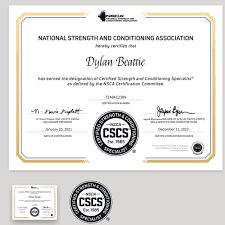
You can build muscle by using bodyweight exercises. These exercises could include Planche (Chin-ups), Squats (Squats), and Pullups (Pull-ups). Try to dedicate two sweat sessions each week to your upper and lower body. It is also possible to do isometric sets. These are exercises that overload the muscles just enough to cause minor damage.
Planche
Planche exercises require strength, balance, awareness, and a lot of body awareness. It also involves working the abdominals and upper back muscles. Keep your arms and legs straight and at a 45 degree angle while bending forward. You should hold the planche position for 30 to 60 seconds. If you are having difficulty with the planche position, you might consider partnering up with someone or using a planche-machine.
Chin-ups
Chin ups are a great way to increase your back muscles. For a total of 4-8 times per week, do chin-ups. Allow your muscles to rest between sets so that they can recover and get ready for the next set.

Squats
Squats target your glutes and quads. Squats are typically performed with heavy barbells, but you can perform them with lighter weights or no weight at all. Make sure to warm up before you start a squat routine.
Pull-ups
Pull-ups are a great exercise to include in your routine if you want to get the most out of your workout. These exercises work multiple muscles and require intense abdominal tension. These exercises are effective in improving your posture, shoulder mobility, and overall health.
Squat-ups
You can do squat-ups to increase your bodyweight, but it is important to do them correctly. You can strain your lower back and knees if you lift too much weight. Do not lift too much weight. Instead, activate your core muscles and use them as a weight belt. Doing squats often can help build strength, power, and endurance.
Squat-downs
Squats are a bodyweight-mass workout that targets the entire lower half. Your legs should contract and your quads should contract to simulate being lifted off the ground. You should also squeeze your glutes, calves and glutes. Avoid using your elbows to stabilize the lower body. Instead, keep your back neutral and squat straight.

Press the chest
Chest pressing is a great way to build chest muscles. Unlike other forms of chest exercise, the chest press is not dependent on the use of machines. All you need is a sturdy bench and a pair of dumbbells. You can quickly create a huge chest using these two tools.
FAQ
What is Nutrition Good for?
Your body's ability to function properly is aided by nutrition. To ensure that your body receives adequate nutrition, it is best to eat a balanced meal with lots of fruits and vegetables, lean protein, whole grain, as well as healthy fats.
Do I gain weight from exercising?
Not at all. In fact, exercise helps you to maintain your current weight. Regular exercise will help you build muscle and boost your metabolism. This will allow you to burn more calories every day. This means you won't store as much fat in your body.
How many hours should I sleep each night?
The amount of sleep that is recommended for each individual depends on their age, gender and needs. Adults require 7 to 9 hours sleep per night. Teenagers and young children generally need around 10 hours of sleep each night. This number decreases as they age.
Why is physical fitness important for your health?
It is essential to maintain our physical health. Exercise is important to maintain your weight, strength and flexibility as well our cardiovascular system. Exercise improves sleep quality, helps with stress management, increases energy and boosts self-esteem.
What should I eat before I work out?
No. You don't need to eat anything before working out. However, if you're hungry after working out, you might want to snack on something light like fruit or yogurt.
Why is it important that you get enough sleep?
Sleep is essential for maintaining a healthy lifestyle. Sleep allows your body to repair itself and recover from daily stresses. A good night's sleep is essential for optimal functioning throughout the day.
Statistics
- In high-income countries, 26% of men and 35% of women were insufficiently physically active, as compared to 12% of men and 24% of women in low-income countries. (who.int)
- Globally, 81% of adolescents aged 11-17 years were insufficiently physically active in 2016. (who.int)
- One study showed that adults who watch more than 4 hours of television daily had an 80% higher risk of death from cardiovascular disease. (heart.org)
- Globally, 28% of adults aged 18 and over were not active enough in 2016 (men 23% and women 32%). (who.int)
External Links
How To
How to Stay Fit at Age 40
This article provides guidance for people who want to keep their bodies strong and healthy, even after turning 40. This article provides basic information on how to eat well, exercise, sleep well, and take care your mental health. This article gives tips on how to live longer and healthier.
-
You must eat right - When you want to keep fit, the first thing to do is to eat healthy foods. You should steer clear of processed food products, and eat whole grains and fruits, vegetables, lean proteins, fish, eggs, nuts, seeds, beans and legumes. You can always add more to your diet if you don't enjoy what you eat. Don't starve yourself; this won't help you lose weight. Instead, try adding small amounts to your daily meals. If you normally only eat chicken breasts, you might consider adding turkey to your weekly meals. Or if you love pasta, try rice occasionally. Make these foods part of your daily routine.
-
Exercise – Make sure you exercise at least 3x per week. Include cardio activities such walking, running swimming biking, cycling, and dancing. Make sure to get enough rest. It is recommended to get 8 hours of sleep each night. Make sure to drink lots of water throughout your day. Drink 2 liters (0.5 gallon) of water each day.
-
Sleep Well - Proper sleep is crucial for staying healthy. According to the National Sleep Foundation adults need 7-8 hours of sleep per day to maintain their optimal physical and emotionally healthy. The majority of people sleep less than 6 hrs a night. If you find that you are constantly tired throughout the day, try making adjustments to your sleeping habits. It is possible to catch up by making adjustments to your sleep schedule, such as waking up earlier or going to bed later. Additionally, try turning off your phone before going to bed so that you can wind down and relax. Avoid caffeine after noon. It can cause insomnia.
-
Take Care of Your Mental Health - Taking good care of your mind is crucial for keeping your body healthy. Stress can lead people to have poor eating habits or make poor lifestyle choices. You should practice stress management techniques, such as yoga, meditation, breathing exercises, or relaxation. You should spend at least one hour each day doing something that you find enjoyable. You could go for a walk, play sports, read a book, listen to music, or watch TV.
The four above points will make you live longer and more healthy. These are simple steps that will help you reach your fitness goals.